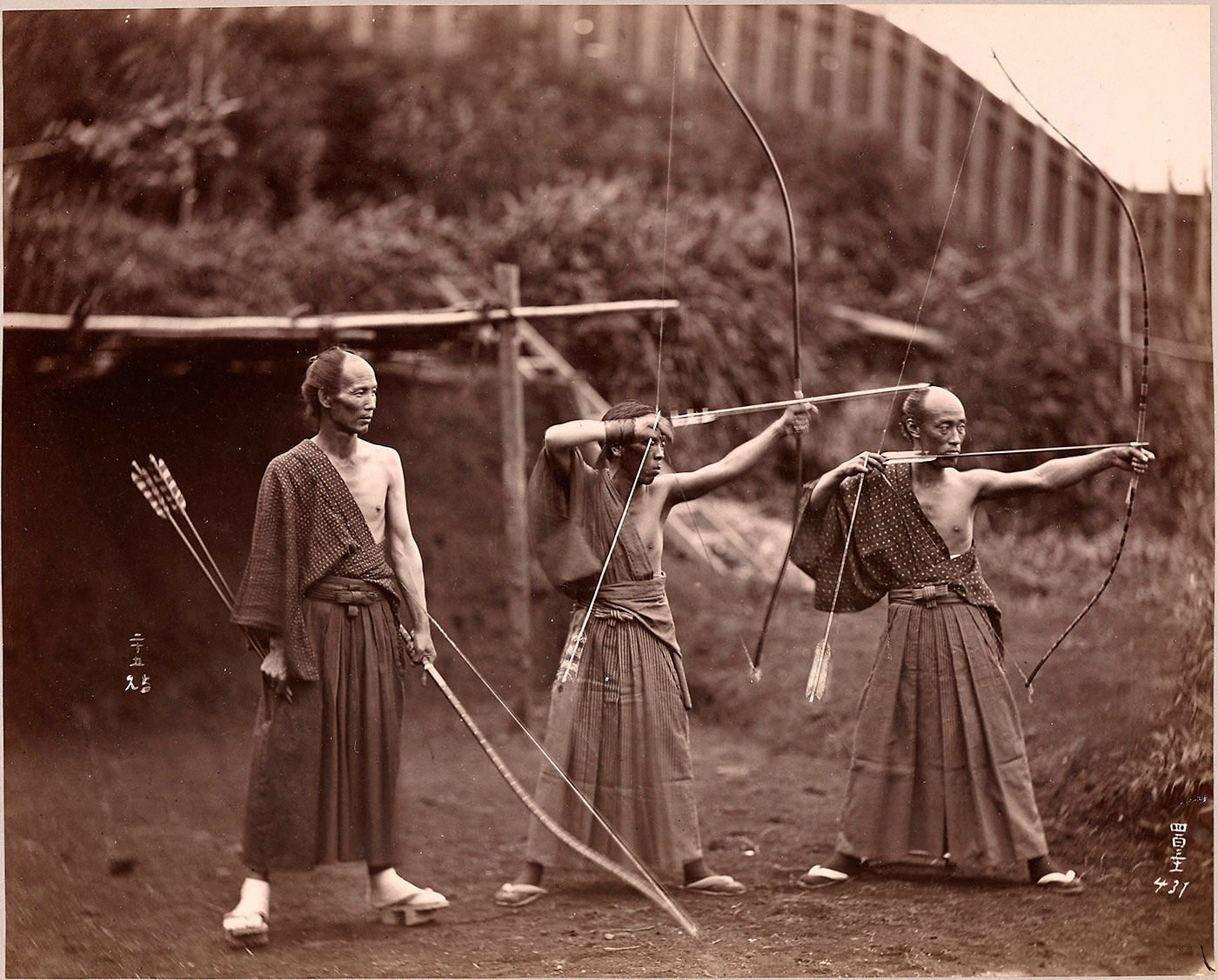
Japanese archers
“Man is not troubled by events but rather how he interprets them.” – Epictetus
Surf the web a bit (does anyone use that expression any more?) and you’ll quickly conclude that today’s scientists are stressed. Non-scientists might think Of course! Who wouldn’t be frustrated by all that maddeningly esoteric mathematics and the vexations of experiments and field studies gone awry?
Actually, scientists love those bits (literally, in this digital age). Instead, the frustration comes from other figures: budget uncertainties for R&D. Administration cutbacks in the number, size, and field of play of science advisory committees. Unfilled scientific leadership positions in the White House and at federal agencies. Immigration limits barring talented foreign students who’d like to study science at U.S. universities. Low STEM scores from U.S. K-12 students. Statistics revealing widespread public skepticism with respect to the science on vaccinations, genetically-modified-organisms, climate change, and much more. The intrusion of today’s divisive politics into the scientific arena.
In reality, and relatively speaking, we scientists per se still have it pretty good. By and large, the great majority of us have benefited from a privileged upbringing and education. What we consider our “plight” pales beside that of the Dreamers, facing deportation to a “home” they’ve never known; of those addicted to opioids, who face lifelong suffering for a few bad early-life choices; of those abused and exploited by virtue of their gender or race; of those whose poverty and poor education challenge their efforts to find employment in today’s high-tech, globally connected world[1]. There’s no comparison. And that’s before we get to the turmoil and achingly difficult struggles of life in many other countries around the world.
But these days scientists are not alone in experiencing stress and doubt despite extraordinary good fortune.
We’re joined by Olympic athletes.
Think about it. Much like scientists as a general class, these gifted, remarkable men and women have been especially favored in every way they could possibly want. They’ve been selected over hundreds or thousands of other aspirants for participation in the 2018 Winter Olympics games. And that two-week, all-expenses-paid stay in PyeongChang is just the tip of the iceberg. To start, they were born with the right DNA, or close to it – they “chose” their parents well. They inherited their parents’ physical gifts and had those gifts recognized early on. Then, for months and in some cases years they’re received priceless personal medical attention, nutrition, and training, world travel and experiences and opportunities (that will extend for years into the future) that are lavished on only a handful of the world’s seven billion people.
They should be ecstatically happy!
But for now they’re sleepless, tossing and turning, struggling to maintain the optimal pre-event physical regimen (including that sleep they’re missing), dealing with their messed-up biological clocks, the relentless and often harshly critical media attention, and dark thoughts hanging over it all that this-is-my-once-in-a-lifetime-Olympic-shot-what-if-I-don’t-do-my-best. It’s that point in their competitive rhythm when all the aching physical work of years can be undone by lack of mental focus for a few minutes or even seconds – missing that tricky slalom gate, or failing to land that triple axel, or hesitation hopping into the bobsled at the top of the run.
They face this during every competition. But most matches are merely part of a season of competitions. Come up short in a particular one? No worries. Just apply yourself and do better next week. Even at the global level, many competitions are annual; an athlete can count on multiple chances. But the four-year gap between Olympic events alters the calculus. In many of the events, few athletes can expect to maintain their peak for more than one. An injury, an illness, a lapse in concentration, and a career of effort “has been for nought.” Or four more years of demanding physical effort and doubt await.
To recap, scientists and Olympic athletes alike face stress; that stress threatens to compromise the focus both groups need if they’re to be most productive and successful; and (most importantly):
most of that stress is self-imposed.
We could stand to learn from athletes. Because their stress-onset is often acute, athletes may be more disciplined in their approach to stress management (acknowledging it; owning it; managing it) than the rest of us, for whom the stress might be more chronic, a constant in the background. Athletes accomplish this by understanding their circle of influence, distinguishing between those factors not under their control (downhill- or slalom run wind- and ice conditions, the level of competition, etc.) and those that are (their own body mechanics, actions, etc.) and concentrating on mastery of the latter.
This year’s Olympic venue is in Asia, where culture and philosophy of the martial arts (similar to competition) offer much guidance. Take just one example, Zanshin, a state of relaxed awareness and alertness in the martial arts, and one application – archery, or kyudo. This is a martial art, a form of competition, but is also viewed as a form of moral and spiritual development. Asian archers, and their martial counterparts, seek mushin, a state of “no mindedness,” that is, a mind not fixed or occupied by thought or emotion and thus open to everything – achieved when a person’s mind is free from thoughts of anger, fear, or ego during combat or everyday life. Of course, eastern religions have no monopoly on ideas such as this; Jesus captured much the same thought when he said, “do not worry.” And Epictetus proffered the same advice.
So, fellow scientists, if we want to keep moving science and technology forward, we might explore and develop practices of mindlessness with respect to the high stakes or frustrating conditions of our work.
Too complicated? Requiring too much self-discipline? Well, we could instead follow the example of half-pipe gold medalist snowboarder Chloe Kim – and eat ice cream.
_________________________________________
[1] Of course, there are some scientists sprinkled through all these over-simplified categories.
